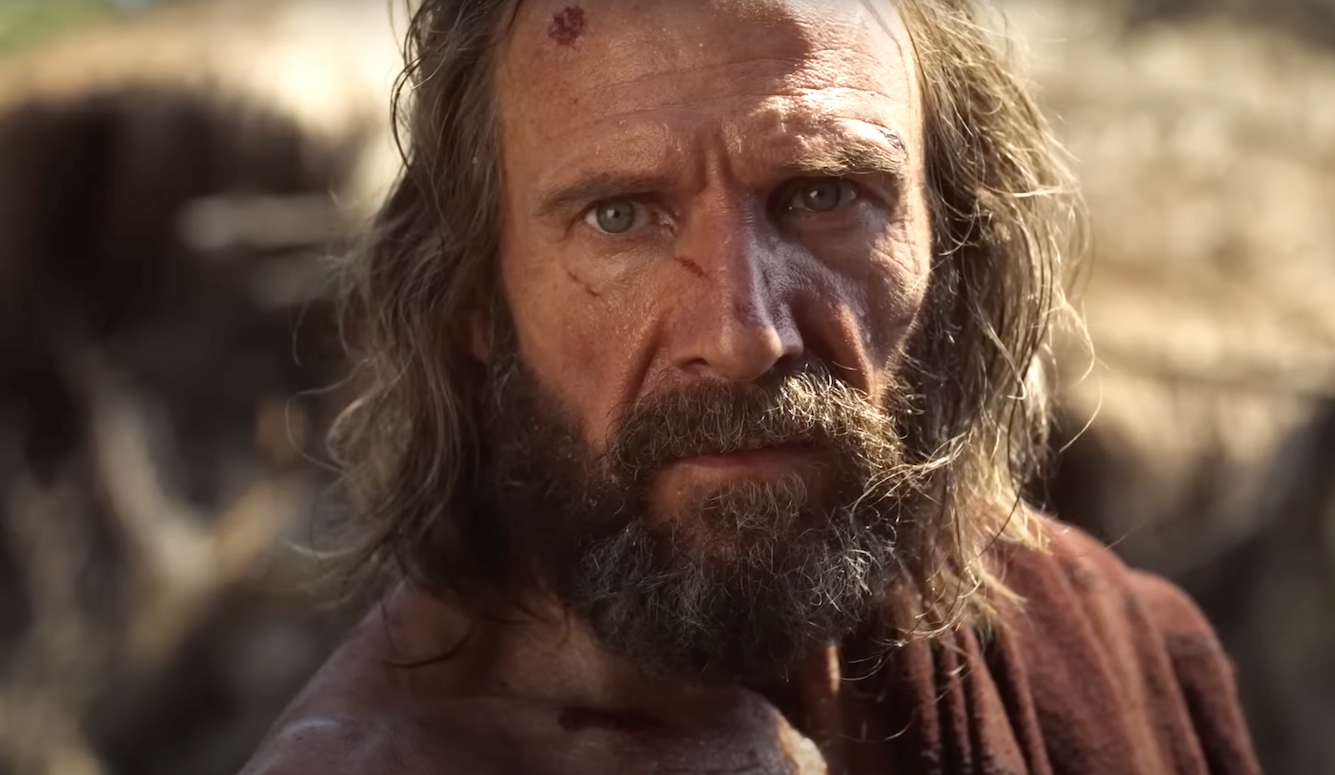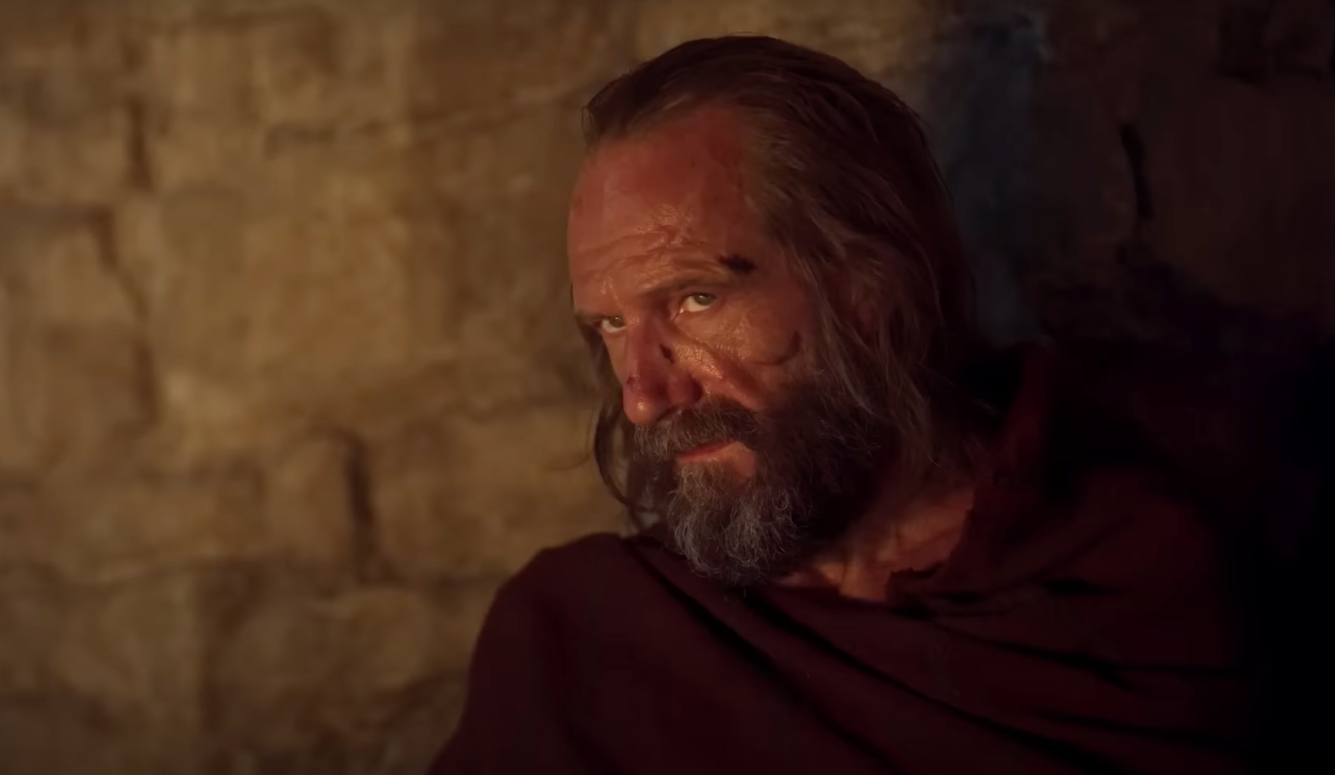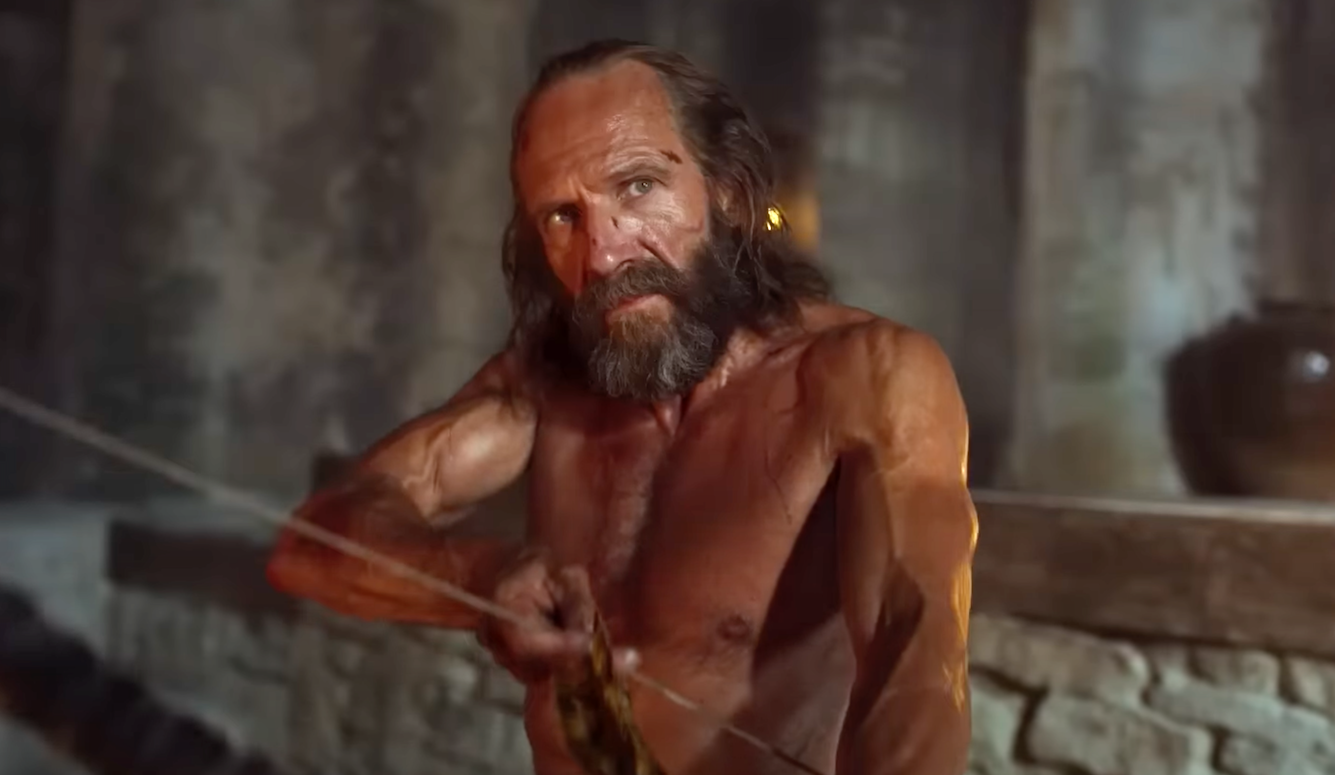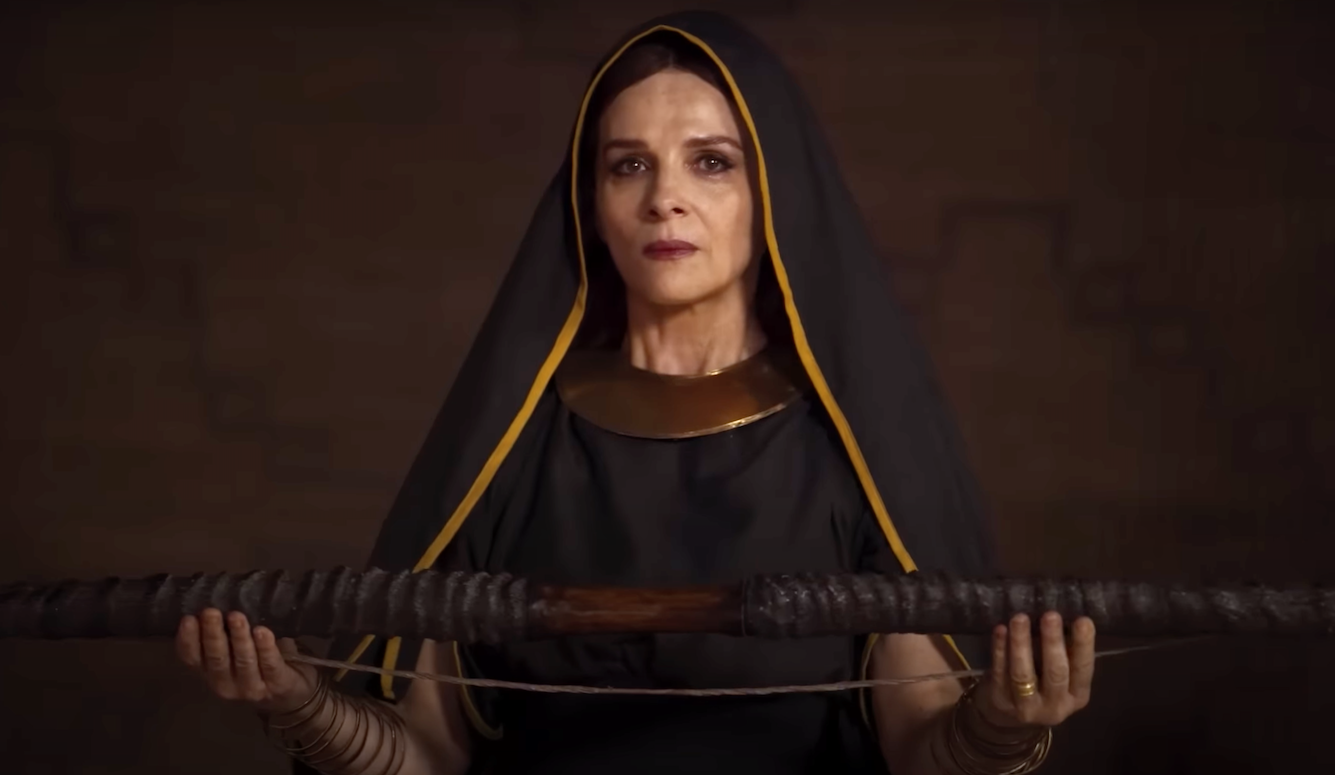Art and Culture
Epic Failure
Many of the people involved in Uberto Pasolini’s new screen adaptation of Homer’s ‘Odyssey’ are intimidatingly talented. It’s a pity, then, that the film is such a disaster.

Homer’s Iliad is the first and greatest epic poem to have come down to us from ancient Greece. The Odyssey is the second. Homer is thought to have composed it in old age. Although this later epic is less powerful than the Iliad, it has been more influential, perhaps because the story seems universal—it’s about a tired old man who wants to go home and sleep in his own bed again. As every student of literature knows, James Joyce’s Ulysses is a retelling of the Odyssey updated to 20th-century Dublin. Joyce is by no means the only major writer to have adapted Homer’s epic to a new form, context, or language. But he is one of the few who succeeded. It takes great cunning to transform the Odyssey into something that modern audiences can enjoy.
Many of the people involved in Uberto Pasolini’s new screen adaptation of the Odyssey are intimidatingly talented. Ralph Fiennes and Juliette Binoche are two of the most gifted living screen performers, and among the younger cast members, Marwan Kenzari stands out as an exquisitely sinister villain. Even the musical score is the work of a distinguished professional: its composer Rachel Portman won an Oscar for her work on Emma in 1994. It’s a joy to experience the work of people like Fiennes, Binoche, Kenzari, and Portman, simply because they are so good at what they do.
It’s a pity, then, that The Return is a failure. Most of the blame lies with a misconceived screenplay. Pasolini’s unimaginative direction doesn’t help. It may be that the Odyssey’s reputation intimidated the director and screenwriters, who somehow manage to be too reverent towards their source material and not reverent enough. In any event, the upshot is a film that feels like a primitive piece of early 20th-century cinema, made before anybody had worked out how to develop a coherent feature-length narrative on screen or move actors around in a scene.
Homer and the Ancient Epic
Homer created the first two surviving literary works in the Western tradition, both of which enjoyed the status of sacred texts during antiquity. For over a thousand years, until the fourth century AD or so, every educated person in what eventually became the Roman Empire knew much of the Iliad and Odyssey by heart. And yet, we know nothing about the man who composed these poems. Despite Homer’s prestige, we have no idea who he was, when he lived, where he came from, or even whether or not he actually composed the Iliad and the Odyssey by himself.
(Anyone interested in venturing down a Homeric rabbit-hole can begin by consulting the relevant articles in the Oxford Classical Dictionary, The Cambridge Companion to Homer, Oxford Readings in Homer’s Iliad, and Oxford Readings in Homer’s Odyssey. Those interested in exploring further can buy a copy of the late Professor Martin West’s The Making of the Iliad and his similarly expensive The Making of the Odyssey. Even the most well-educated reader will feel ignorant after a few pages. Professor West’s books are worth every penny of their outrageous cover prices, even if some of his most striking ideas sound self-evidently mad.)
But let’s assume for the moment that the traditional stories are true—that Homer was a real person, a blind bard who was born at some point during the 8th century BC, composed the Iliad around or after 725 BC, and then wrote the Odyssey some time before 675 BC. The Iliad is fundamentally a tragic poem about virtue, honour, justice, and the pursuit of fame and everlasting glory in the face of hardship, suffering, injustice, and death. Much of its power lies in the sheer scope of Homer’s inspiration and awesome technical ability. Even a bad translation raises existential questions of a sort that can keep a person up at three in the morning.
The Odyssey, on the other hand, is a very different kind of epic. It has a happy ending that is telegraphed in advance, and its episodes often have the quality of a romantic fairy tale. Nevertheless, it is still a heroic epic. The hero, Odysseus is constantly in peril and survives with a combination of luck, cunning, physical prowess, and quick thinking, not to mention the advice and protection of the goddess Athena, who loves him and only allows him to suffer because suffering will make him a wiser man.
Homer—whoever he was—was more than just an entertainer. But the greater meaning of his work is difficult to spell out succinctly because he develops his major themes symbolically as well as in narrative form. There are lines and entire speeches—especially in the Iliad—that can be quoted out of context and mulled over at length. But there are no pat lessons imparted by either work, and attempts to extract them usually produce only unsatisfying bromides like “war is hell” or “death comes to us all.” Homer’s poetry cannot be reduced to a pithy summary.
The Odyssey
A rough outline of the Odyssey should be enough to demonstrate the challenges involved in adapting even part of its narrative into a two-hour film. The poem consists of about 12,000 lines of verse divided into 24 dense books, and it is too dense to speed-read. It tells the story of how and why it takes Odysseus, the king of the island of Ithaca, two decades to return home from the Trojan War.

The Odyssey opens at the very end of Odysseus’ protracted voyage home, but flashbacks fill us in on the episodes that delayed his homecoming for so long. At the start of his journey, Odysseus angers the sea god Poseidon by blinding Poseidon’s son Polyphemus, a giant one-eyed monster known as a Cyclops. In a series of further misadventures, Odysseus loses most of his men and ships and ends up on the island of the witch Circe, who transforms a scouting party of Odysseus’ men into pigs. Thanks to the messenger god Hermes, Odysseus avoids this fate himself, and gets Circe to turn the pigs back into men.
Odysseus spends a comfortable year sharing Circe’s bed until he is reminded that he and his remaining men have to go home. However, his men become increasingly disobedient, and they end up sacrificing and eating the sacred cattle of Helios (the sun god) in defiance of Odysseus’ explicit orders. For their sacrilege, they are all drowned in a shipwreck, and Odysseus washes up alone on the shores of an island where he is held captive for a further seven years by the goddess Calypso. She releases him only after she is commanded to do so by Zeus.
Homer opens his poem as Odysseus approaches the end of this seven-year period of captivity. Poseidon is still angry and wrecks Odysseus’ raft, but thanks to the intervention of the goddess Leucothea, Odysseus is saved from drowning again, and ends up on the shores of Scheria, the island realm of King Alcinous, where the king’s unmarried daughter Nausicaa finds him. Alcinous decides to help Odysseus get home, even though he thinks his unexpected guest might make an ideal husband for Nausicaa.

Meanwhile, things on Ithaca are not going well after twenty years without a king. Odysseus’ mother has died of heartbreak waiting for her son to return, and his grieving elderly father Laertes is wasting away. His son Telemachus has grown up without a father, and knows Odysseus mainly through stories told by Eurycleia, who was his father’s wet nurse as well as his own. Telemachus’ mother Penelope has never given up hope that her husband is still alive; Telemachus, on the other hand, believes Odysseus to be dead.
Since Penelope is widely thought to have been widowed, she finds herself having to fend off the attentions of 108 suitors, who have made themselves at home in Odysseus’ palace, eating his food, drinking his wine, and vying for his wife’s hand in marriage. The suitors are led by Antinous, a brash and arrogant boor, and Eurymachus, who is polite, charismatic, and deceitful. All of the suitors have been abusing royal hospitality for at least three years, during which Penelope has stalled them by declaring that she will not even think about choosing a suitor until she has finished weaving a burial shroud for Laertes. What she weaves during the day, she undoes secretly at night. When one of her maids catches her and tells the suitors, Penelope is forced to make a decision.
The second half of the epic begins with Odysseus arriving on the shores of Ithaca with no idea of where he is. Athena lets him know that he has finally arrived home. She instructs him to disguise himself as a beggar so that he will be able to see what has become of his kingdom in his absence. Odysseus befriends his old swineherd, who doesn’t recognise him but has remained loyal. Odysseus reveals himself to his son, and they plot to kill the suitors. They go to the palace, where Odysseus is recognised only by his faithful dog Argus, who dies upon seeing his old master. But the suitors treat Odysseus with contempt, mistaking him for a vagrant.
Penelope decides to hold an archery competition to choose a husband: whoever can string Odysseus’ bow and shoot an arrow through a dozen axe heads will win her hand. Of course, only Odysseus is strong enough to do that. The only person to have recognised Odysseus is the nurse Eurycleia, who notices an old scar on his leg—the result of a boar hunt when he was a child. She is sworn to secrecy, so that Odysseus can join the competition in disguise, restring his bow, and defeat his romantic rivals for the hand of his own wife.

The plan succeeds. All 108 suitors are slain, along with their collaborators and accomplices, while loyal servants are rewarded. Twelve maids who slept with the suitors are also hanged. Now it only remains for Odysseus to reveal himself to Penelope, who acknowledges his identity after he discloses a secret to her that only the two of them know. At last, Odysseus is also reunited with his aged father, just as the suitors’ families prepare for revenge. Telemachus and Odysseus prepare for battle, and Antinous’ father is killed. Then Athena puts an end to the slaughter, and the poem ends in peace.
Adaptation Challenges and a Difficult Personality
It ought to be evident from that synopsis just how difficult it is to turn the Odyssey into a two-hour movie—the narrative is filled with too many characters and incidents to permit a faithful adaptation. My summary leaves a lot out, such as King Menelaus’ struggle with Proteus, the shape-shifting Old Man of the Sea, and Odysseus’ descent into the Underworld to hear a prophecy.
Certain elements of the story don’t translate well into the medium of modern cinema. For example, in an epic poem, there is nothing particularly implausible about Odysseus’ disguise when he returns home to Ithaca, or the way he conceals his identity from his wife and his elderly father. This sort of suspension of disbelief is also possible in (for example) a Shakespearean comedy on the stage, or perhaps in a silent movie. But modern moviegoers have different expectations. Other scenes would go over the heads of a general audience unfamiliar with the rest of Homer’s work. The descent of Odysseus into the Underworld, for instance, relies for much of its emotional impact on foreknowledge of the Iliad and its stories of Achilles, Agamemnon, and Ajax.
And then there are the gods, who aren’t just symbols or metaphors or vague means of explaining natural phenomena. Their relationship to the physical world is difficult to imagine even for those of us who are steeped in classical literature. Athena, Poseidon, and Zeus are all fully-fledged personalities in their own right. They intervene directly in the action throughout the Odyssey, and they have deep relationships with human characters as well as one another. In The Return, the writers have solved this problem by doing away with the narrative’s supernatural and mythical elements altogether, and narrowing their focus to Odysseus’ arrival in Ithaca and his attempts to reassert his authority within his own palace. This ought to have been a sensible strategy, and yet the writers manage to make a mess of it just the same.
The late Edward Bond—best known for his 1965 stage play Saved, in which a baby is stoned to death—was not exactly an obvious choice to adapt Homer’s Odyssey for the screen. Born in 1934, Bond died on 3 March 2024 shortly before his ninetieth birthday. This screenplay for The Return was his final work, and although it isn’t clear how much of his draft survived in the finished film, the end result seems to bear his stamp far more than that of his collaborator John Collee. Collee helped Peter Weir adapt the Russell Crowe vehicle Master and Commander in 2003, which was a bracingly heroic epic; The Return is anything but.
Bond came from a turbulent North London background and left school at the age of fifteen. In many ways, he was a tragic figure. He rose to prominence at a time when “Angry Young Men” like John Osborne, Harold Pinter, and Arnold Wesker were in vogue, all of whom came from working-class or lower-middle-class backgrounds. Their plays were promoted as an alternative to Noel Coward’s elegant comedies, Terence Rattigan’s genteel melodramas, and bourgeois escapism in general. Saved was Bond’s second full-length play and its shocking violence retains a certain emotional power—but even in 1965, it was obvious that he was already running out of material. He wanted to believe he was a genius, but he never quite got over the suspicion that he had been over-promoted on account of his class. Even his best plays are marred by preachiness, self-pity, and an air of pretentious artiness. Their aggression and violence seems to be a kind of primal-scream therapy meant to relieve his sense of inadequacy.
Why did Bond write The Return in the first place? As far as I can tell, he knew next to nothing about the ancient world and had no sympathy for Homer, the Odyssey, or anything to do with war or heroism. On the contrary, he despised aristocrats—even mythical aristocrats like Odysseus. As a result, the story’s hero is stripped of all heroism and planted in a bleak, violent, appetite-driven world where love, honour, and virtue are scarce. Many people will counter that this is a plausible vision of reality. Be that as it may, it bears little relation to Homer, which makes one wonder what drew Bond to try to adapt this material.
It would be interesting to compare Bond’s final draft with the finished film to see how much of his writing was either discarded or rewritten. It is likely that any editing was done without Bond’s knowledge—he wasn’t known as a team player and stubbornly refused to compromise on even minor details of his work. “Edward Bond is simply the most difficult person I have worked with in 40 years,” his former collaborator Max Stafford-Clark once said. “I believe this may go some way to explaining why his work is so infrequently seen in this country.”
A Team Effort
As a film, The Return has a few points in its favour. The director, Uberto Pasolini, has a real gift for montage. In the second half of the film, there is a thrilling manhunt through a wood that ends too soon—if only there were more than five minutes of sequences like that! Unfortunately, Pasolini demonstrates almost no dramatic sense. Scenes drift and meander and then end abruptly, and there is simply not enough narrative tension in the screenplay to sustain interest. Worst of all, he doesn’t seem to know how to work with actors.
Ralph Fiennes, Juliette Binoche, and Marwan Kenzari don’t need to be told what to do in front of the camera. But almost everybody else did need to be told what to do, and they seem to have received very little help from their director. It’s hard to tell whether Charlie Plummer, who plays Telemachus, is a terrible actor or a competent one doing his best with meagre material. The actors who play Penelope’s suitors mill around aimlessly. The best-written character is Antinous, who is a composite of his own character and that of Eurymachus—one of the few shrewd decisions the screenwriters made. Marwan Kenzari plays the leader of the suitors as a menacingly polite, feline administrator who never needs to raise his voice because he is so good at manipulating his perceived opponents. Kenzari’s Antinous is eerily convincing—or would be, if the character had been provided with a plausible reason for wanting to marry Penelope.

Penelope’s age is not specified in the Odyssey, but she is generally thought to be no older than forty by the time Odysseus returns. Her wealth and fertility make her attractive to her suitors, who hope to establish a dynasty of their own on Ithaca once Laertes and Telemachus are out of the way. It is therefore essential that she is not too old to bear children. But this important detail seems to have escaped the notice of screenwriters, director, and star alike (it was Fiennes who suggested Juliette Binoche for the role). At 61, Binoche is still one of the most beautiful women in the world, but she has clearly passed the point of bearing children.
Also this version of Penelope doesn’t even seem to have any money. The art department presumably thought they were maintaining historical authenticity by making the interior of Odysseus’ palace look like a shepherd’s hut. But in the absence of any wealth or the ability to produce an heir, there is no obvious reason, within the context of Bronze Age warrior culture, for all the interest that Penelope attracts. The costumes seem to have been designed with the same degradingly primitive aesthetic in mind (it’s a testament to Binoche’s magnetism that she remains watchable despite being dressed in a shapeless muumuu). Most of the cast are adorned in coarse blankets that make them look like players in a school production of Julius Caesar. At least the nurse Eurycleia (an under-used Angela Molina) is permitted to dress in an outfit that shows off her shoulders, but she is much too young here to have been Odysseus’ wet nurse.
Pasolini does manage to get one thing right—Ralph Fiennes is brilliantly cast as Odysseus, despite being at least twenty years too old for the part at 62. He got into the best shape of his life for the role, and in the film’s later scenes, he really looks and moves like a warrior-king. But the version of the character he is given to play is never fleshed out into three dimensions by the script—Odysseus is just a professional killer who marinates in guilt and self-loathing until it’s time to kill again. So, like most of the rest of the cast, Fiennes is given precious little to do with his talent. In Homer’s story, Odysseus disguises himself as a bum. In The Return he really is a bum—a bedraggled derelict thrown up on the shores of Ithaca crippled by post-traumatic stress disorder. That he is also a king who has become a legend in his own lifetime is treated as an irrelevant detail. So, Fiennes stumbles around muttering incoherently like a fentanyl addict, until the final act, when he finally springs into action and murders all his wife’s suitors.
It is not clear how or when Penelope recognises her husband. She quietly refers to Odysseus as Telemachus’ father just before the suitors are massacred. But this unexplained disclosure comes out of nowhere and seems to offer further evidence that nobody involved in this project bothered to think any of this through. In the end, The Return is really only valuable as a cautionary tale for ambitious filmmakers. It won’t do to seek financial backing and look for an all-star cast for your project if, like Uberto Pasolini, you haven’t figured out what you’re trying to do or why. And if you select a plainly unsuitable screenwriter like Edward Bond, then you are more to blame for the results than he is.
Christopher Nolan’s adaptation of the Odyssey is scheduled for release in summer 2026. Early indications are not necessarily promising: with an unlimited range of casting options, Nolan inexplicably settled on Matt Damon for Odysseus. Still, Nolan is a much more capable director than Uberto Pasolini. Perhaps he will be the first filmmaker to get the Odyssey right.






